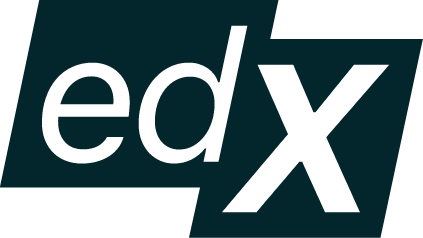
Competitive candidates in the product management field know the importance of effectively articulating their knowledge and transferable skills to impress prospective employers. If you’re looking to level up your interview game, we’ve got your back.
Discover practical tips, strategies and real-world examples that will help you craft compelling responses and demonstrate your professional value with confidence. Whether you’re a seasoned product manager or aspiring to break into the field, we’re going to make sure that you’re fully prepared to tackle any question that comes your way.
This guide provides a list of sample interview questions and tips on building your responses to common interview questions in the product management hiring process.
Interview questions by category
We have categorized the interview questions into three sections. Feel free to read straight through or jump to the sections that interest you most.
Tell me about yourself.
Give a snapshot of your work history. Think about your:
- Past — previous experience and education
- Present — your current job and how it’s preparing you for this role
- Future — why you want the job you’re interviewing for
Your snapshot should show the interviewer how your experiences equip you with the skills to succeed at their company and why you are interested in the specific role.
What are your greatest strengths and weaknesses as a product management professional?
Consider the job description and the required skills in the posting, and align your answer with a skill you’ve mastered. Discuss your areas of expertise and how they will benefit the organization, team, or position. For weaknesses, discuss areas for improvement and what you’re actively doing to improve those skills. Do not cite necessary skills for this position as weaknesses.
Why do you want this job?
Demonstrate that you’ve researched the company, and express what you like about it and why your skills would be a good fit for the job. What about the organization’s mission, values, and population do you identify with? Explain how the role will contribute to your career progression and what you can contribute to the team. What about product management excites you? Keep your reply high-level, specific, and not overly personal. Be specific and enthusiastic about potentially working for the company.
Where do you see yourself in five years?
This question is designed to probe your career goals and vision. First, tell your interviewer about your career aspirations and ambitions. Then, express your desire to succeed and explain how this job will contribute to your progress. Use this question to show that you are goal-oriented and have a plan to achieve your goals.
What are your salary expectations?
Prepare thoroughly for this question and start by reviewing the Salary negotiation guide. Research salary ranges for this particular job, this industry, and your geographic area using websites like Payscale.com or Salary.com. The interviewer wants to know how you value yourself. To avoid leaving money on the table, ask how the interviewer values the role before stating your expectations. Aim high but within the range you’ve researched, and be prepared to provide examples of why you’re worth the salary you cite.
Do you have any questions for me?
Interviewers often ask this question to gauge your interest and to see if you’ve researched the company. Prepare a few questions in advance, but keep in mind that your questions may be answered during the interview. To show you’re engaged with the interview process, prepare questions related to work, company culture, or day-to-day responsibilities of the job.
Expert advice
“Some job seekers assume that the employer can make these decisions based off of a resume, but they want to get to know you as a person to see if you would be a proactive/positive/helpful/efficient (etc.) member of their team. By brainstorming ways that you can elaborate and provide examples of the skills they are seeking, you are giving them reason to want to hire you.”
– Deanna P., career expert at edX

Product management interview questions
Why did you choose to go into product management?
Consider highlighting your passion for problem-solving and creating impactful solutions. Emphasize your desire to work at the intersection of technology, user experience, and business strategy. You can discuss how the dynamic nature of product management aligns with your strengths in collaboration, communication, and strategic thinking. Showcase your excitement for the opportunity to drive innovation, shape user-centric products, or create positive outcomes for your users.
Example:
I was drawn to product management because it combines my passion for problem-solving, technology, and business strategy. From a young age, I’ve always enjoyed finding creative solutions to complex challenges, and product management provides the perfect platform for that. The opportunity to work at the intersection of technology, user experience, and business excites me because it allows me to leverage my diverse skill set. I thrive in collaborative environments, and product management provides the ideal setting to collaborate with cross-functional teams, from engineering to marketing, to bringing innovative products to life. What truly energizes me about this role is the ability to make a tangible impact on customers’ lives by shaping user-centric products that solve their needs and enhance their experiences. Seeing a product evolve from conception to launch and witnessing the positive impact it has on the users is incredibly rewarding. That’s why I chose to pursue a career in product management — to drive innovation, create meaningful solutions, and have a lasting impact in the ever-evolving tech landscape.
Walk me through your experience with agile methodologies and how you’ve used them to deliver products efficiently.
Provide a concise overview of your familiarity with agile principles and methodologies such as Scrum or Kanban. Highlight specific projects where you’ve successfully implemented agile practices, emphasizing your role in facilitating cross-functional collaboration, iterative development, and delivering products on time. Discuss how you effectively utilized agile frameworks to adapt to changing requirements, maintain transparency, and foster continuous improvement through the product development lifecycle.
Describe a situation where you’ve successfully influenced a team or stakeholders to adopt a new idea or change their approach.
Focus on the specific context and challenge at hand. Explain your approach, include active listening, clear communication, and building a compelling case backed by data or consumer insights. Highlight the collaborative efforts you made to address concerns, gain buy-in, and demonstrate the positive outcomes achieved through the adopted idea or approach.
Can you explain your approach to product roadmapping and how you balance short-term needs with long-term vision?
Emphasize the importance of strategic planning and alignment. Describe how you collaborated with key stakeholders to define clear objectives and prioritize features based on customer needs and market trends. Highlight your ability to strike a balance between delivering incremental value in the short term while keeping the long-term vision in mind, and discuss how you regularly assessed and adjusted the roadmap to adapt to changing circumstances.
Why are you leaving your current position?
This can be a tricky question; always remain positive. When discussing your current company or environment, give a truthful reason for leaving, but do not bring negativity into the discussion. Instead, focus your answer on developing and expanding your career in the product management field. Share what you’ve learned about this potential new employer and how well it fits your goals, strengths, and experience.
Pro tip:
Don’t be afraid to answer a situational question if you’re new to the field and lack professional experience. Instead, demonstrate what you’ve learned in your coursework and how you’ll apply that theory in practice. Use previous experience (outside the industry is fine) to tell a story using the STAR (Situation, Task, Action, Result) framework for behavioral questions to provide details about your accomplishments.
Walk me through your process of gathering user feedback and incorporating it into product development.
You can discuss your user-centered approach here. Explain how you employ various methods such as surveys, interviews, usability testing, or analytics to collect valuable insights. Highlight your ability to analyze and prioritize feedback, align it with business goals, and iteratively incorporate it into the product development cycle, ensuring continuous improvement and delivering a solution to meet user needs.
Can you describe a product or feature that you successfully launched? What was your role in its development and how did you measure its success?
When responding to this question, provide a concise overview of the product or feature, highlighting your specific role in its development. Discuss the process you followed, including ideation, requirements gathering, collaboration with cross-functional teams, and any challenges you overcame. Describe how you measured success by outlining key metrics such as user adoption, customer satisfaction, revenue impact, or any relevant KPIs, and showcase the positive outcomes achieved as a result of the launch.
Expert advice
“Make a lasting impact on the products you’ve managed. Remember, you are building your own comprehensive toolkit for success.”
– Colin L., career expert at edX

Have you ever faced a major challenge or setback in a product management project? How did you address it?
Be transparent about the situation while focusing on your problem-solving approach. Describe the specific challenge, the impact that it had, and how you swiftly identified the root cause. Discuss the steps you took to mitigate the issues, such as gathering input from stakeholders, adjusting the project plan, re-allocating resources, or implementing alternative strategies. Emphasize the lessons learned and highlight the positive outcomes achieved through your adaptability and resilience in overcoming the setback.
What would you want to accomplish within your first three to six months of employment?
The interviewer wants to know that you’ve put some thought into an action plan for potential work at their company. If the interviewer has shared expectations with you or any pain points they face, this question is an excellent opportunity to address those factors.
What would your current supervisor or team say about you?
Focus on the strengths. Try to align your response with a quality listed in the job posting. Always provide an example.
What is your management style?
This question assesses how you see yourself as a leader and how you’ll lead others. First, explain what makes a good leader, then provide examples of how you meet and exceed those expectations.
Can you share an example of a situation where you had to make a tough decision that had an impact on your team or the organization? How did you approach the decision-making process?
Choose a relevant example, provide context, outline your decision-making process, and explain your rationale. This is an opportunity to showcase your leadership qualities, and address challenges and lessons learned. Remember to end on a positive note, and highlight your ability to make tough decisions and drive positive results.
How do you approach prioritization and resource allocation when managing multiple products or initiatives simultaneously?
This question is designed to showcase your ability to assess the strategic value, impact, and alignment of each product or initiative with business objectives. Emphasize your skill in leveraging data, collaborating with stakeholders, and utilizing frameworks like weighted scoring or agile methodologies to make informed decisions and optimize resource allocation for maximum value and impact across multiple projects.
Expert advice
“To excel in product management, showcase a diverse skill set. Understand development cycles, value market research, and user experience. Engage with web developers, and learn technical specifications. Gain insights from UX designers on user research. Broaden your skills for a balanced foundation. Embrace diverse perspectives to excel in your career.”
– Colin L., career expert at edX

How do you foster collaboration and communication among cross-functional teams, ensuring alignment and smooth execution through the product life cycle?
Emphasize the importance of building strong relationships, creating a shared vision, and establishing open channels of communication. Highlight your experience in facilitating regular meetings, utilizing collaboration tools, encouraging cross-functional transparency to ensure alignment, streamline decision-making, and drive efficient execution through the product life cycle.
How do you stay informed about emerging trends, technologies, and competitive landscapes in the product management field?
Show your proactive approach to continuous learning. This may include engagement through industry publications, conferences and webinars, or leveraging networking opportunities to stay on top of the latest developments. Tie in your ability to apply that knowledge to your current position.
How do you envision the future of our company?
If you are interviewing for a C-suite role, you’ll be at the helm of future strategic decisions for the company. The interviewers will be interested in your thoughts about the company’s future and how you envision your role there. You need to describe where you see the company going and how you plan to help orchestrate that vision with your role.



